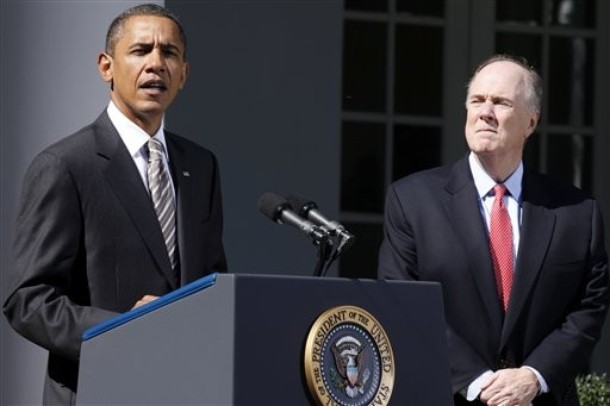
From David Ignatius, the Washington Post: Tom Donilon, Obama’s national security adviser, argues that this isn’t an accident — and that the president deserves more credit for accomplishing the goals he set in 2009. He would say that, of course; it’s part of the national security adviser’s job to spin perceptions. But it’s true that Obama has had more success with the agenda he set in January 2009 than is usually recognized. . . .
Donilon describes it as a “rebalancing” of foreign policy. The top priority remains winding down the wars in Iraq and Afghanistan; whatever the news of the moment, Obama is determined to exit from both. A second sort of rebalancing, enabled by the first, is paying more attention to Asia policy. A third is the reset in relations with Russia, which officials argue pays dividends on issues from Libya to Iran.
Libya is a good illustration of this resizing (and its pitfalls). Obama decided that military action was necessary to prevent a slaughter in Benghazi — but he opposed unilateral action by the United States. So the White House seized an opportunity to “rebalance burden-sharing,” which meant that the Europeans and Arabs, who were closer to the problem, should do most of the work. . . .
The danger of taking a back seat on Libya was that without decisive American leadership, the Libya campaign nearly rattled apart in late June: The fighting was at a stalemate, NATO military resources were depleted and public opinion was skittish. But Obama and his NATO allies proved steadier and more patient than many commentators — and the August offensive finally led to the rebels’ capture of Tripoli.
One key factor in Libya was that in August the United States doubled the number of Predator drones operating there, adding persistent surveillance and firepower over Tripoli. Another was training and mentoring the rebels with Special Forces from Britain, France, Qatar and the United Arab Emirates. A third was that the rebel leadership, initially a hodgepodge when the Transitional National Council was created, grew stronger and more confident as the war progressed. “The six months proved to be useful,” says one senior administration official.
For an administration that came into office believing that allies needed to do more of the fighting and pay more of the costs, Libya has been a validation. Officials say that one unsung hero is Anders Fogh Rasmussen, the Danish politician who is currently NATO secretary general. (photo: AP)
Image: ap%203%2016%2011%20Obama%20Donilon.jpg
